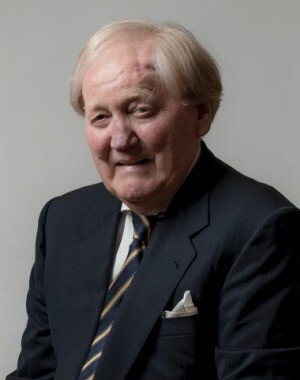Ron Walker hails melanoma ‘wonder drug’ recommended for PBS listing
Source: The Sydney Morning Herald, April 2015
Thousands of Australians with melanoma could get access the “wonder drug" businessman Ron Walker credits with saving his life, after an expert body recommended it be subsidised.

Source: The Sydney Morning Herald
Mr Walker, a leading figure in the Liberal Party and Melbourne business community, said he was “absolutely delighted" by the Pharmaceutical Benefits Advisory Committee’s recommendation that the drug known as Keytruda be listed on the Pharmaceutical Benefits Scheme.
“It will save thousands of lives," said Mr Walker, who has campaigned for the drug to be made available since he secured access to it through a clinical trial in the United States.
The committee’s recommendation is a necessary step towards the drug being listed on the PBS. It now requires the approval of cabinet and successful negotiations with the drug maker Merck Sharp & Dohme on price and listing conditions, but the Coalition promised in opposition to respect the committee’s recommendations and speed up drug listings.
“Prime Minister Abbott is a very compassionate person," Mr Walker said. “He’s very keen to get these new drugs into the hands of people who are dying."
Grant McArthur, the director of the melanoma and skin service at the Peter MacCallum Cancer Centre, said he hoped the drug, which is administered by injection every three weeks, would be listed soon.
He said clinical trial results released last week showed that compared with the standard existing melanoma treatment, Yervoy, Keytruda reduced the risk of death by 30 per cent, and the risk of progression by 40 per cent. Professor McArthur said Keytruda also carried fewer side-effects than Yervoy, including a 50 per cent lower risk of bowel inflammation.
However, in a summary of its decisions, the Pharmaceutical Benefits Advisory Committee said it was “highly concerned" about the “mismatch" between public expectations of the drug and the data provided by the company.
It said patient groups had told a consumer hearing of the committee that they believed the response rate to the drug to be 90 per cent, rather than the 33 to 37 per cent reflected in the data.
The drug is expected to cost about $150,000 a year for each patient.
Professor McArthur said more than 1000 Australians battling advanced melanoma each year could need the new drug.
Merck Sharp & Dohme managing director Susanne Fiedler said many patients with advanced melanoma were anxiously waiting for access to the drug.
“We stand ready to provide the medicine at the earliest opportunity," Dr Fiedler said.
Australia has the highest rate of melanoma in the world, with 31 people a day on average diagnosed with the cancer.
The committee has also recommended the listing of three new generation drugs to treat hepatitis C, despite finding that they were not cost-effective at the prices proposed by their manufacturers.
The committee said treating 62,000 patients with the drugs could cost $3 billion over five years at the prices asked by the companies.
The entire budget of the PBS, which includes 3000 drugs, is about $9 billion a year.
Hepatitis Australia chief executive Helen Tyrrell said the decision was a “watershed moment" and called on the health department and the drug companies to finalise negotiations so that cabinet could approve the listing of the drugs.
The new drugs have cure rates of more than 90 per cent, are taken orally instead of requiring injections and have fewer side-effects.
Only about 1 per cent of the 230,000 Australians with hepatitis C receive treatment for the blood-borne virus that causes liver damage.
